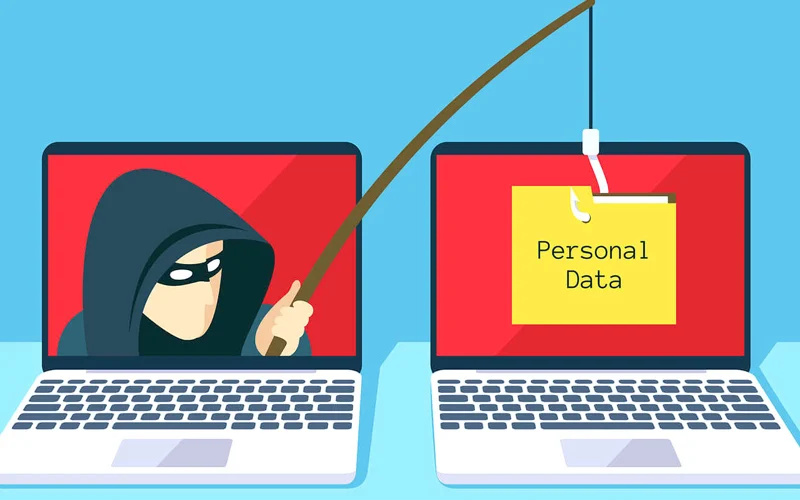Why Are Scams and Fraud Relevant to Prospective Employees? Tips on How to Avoid Scammers.
Scammers don’t discriminate when choosing their targets, and Disclosure and Barring Service (DBS) checks are no exception. Understanding scams is particularly important for job seekers because the process of securing a job often involves sharing sensitive information.

Age also plays a significant role. The Telephone-operated Crime Survey of England and Wales reveals that people aged 25–44 are most likely to be targeted by scammers. In fact, this age group is over twice as likely to be targeted compared to those over 75 (27.9%). Since young adults make up the largest pool of job seekers—often switching jobs more frequently than older workers—they are more vulnerable to these types of fraud.
Practical Tips to Avoid Job-Related Scams
Here are essential steps you can take to protect yourself while navigating the job application process:
1. Know if Your Job Role Requires a DBS Check
DBS checks are designed to ensure the safety of vulnerable groups and the public by identifying whether an individual has a criminal record. Employers may request a basic, standard, or enhanced DBS check depending on the nature of the role. For example:
- Basic DBS Check: Suitable for most jobs not involving vulnerable groups or high security.
- Standard DBS Check: Commonly required in roles within healthcare, education, or security.
- Enhanced DBS Check: Reserved for jobs involving close contact with children or vulnerable adults.
How do I find out which DBS check I need?
- Ask your employer or potential employer to clarify the requirements.
- Visit the official DBS website for guidance.
If you receive a DBS request for a role that does not require it, treat it as a red flag. It could be a scam.
2. Beware of Outdated Requests
Scammers sometimes use outdated terminology or processes to appear legitimate. The Disclosure and Barring Service (DBS) replaced the Criminal Records Bureau (CRB) in 2012. Any request referencing a "CRB check" should immediately raise suspicion.
3. Check the Use of the DBS Logo
The DBS logo is copyrighted, and only the official organisation or authorised entities can use it. If you receive correspondence displaying the DBS logo from an unfamiliar or unverified source, treat it with caution. It’s worth verifying the authenticity of the sender.
4. Verify Who Is Performing the Check
While you can perform a basic DBS check yourself through the official DBS website, standard and enhanced DBS checks must be requested by employers. Employers may outsource these checks to third-party companies known as “umbrella bodies.” These companies act on behalf of employers to process DBS checks.
How to verify an umbrella body company:
- Use the DBS website to confirm if the organisation is officially registered.
- Ensure your employer has obtained your consent before initiating a DBS check.
5. Recognise Industry-Specific Regulations
Certain industries, such as security, have specific guidelines for background checks. For example, only the Security Industry Authority (SIA) is authorised to carry out DBS checks for security-related jobs. If you’re applying for a role in the security sector and are asked to undergo a check through an unauthorised organisation, this is likely a scam.
6. Understand Costs and Fees
Knowing the standard costs for DBS checks can help you identify scams. As of now, official DBS fees are:
- Standard Check: £21.50
- Enhanced Check: £49.50
If a company is asking for significantly higher fees or upfront payments unrelated to the official process, it’s time to investigate further.
In addition to the DBS fees, umbrella body companies may charge administrative fees. For instance:
- Admin Fee: £13.50 + VAT (discounted for bulk requests)
- Document Verification Fee: £13.50 + VAT
Always cross-check these costs and avoid overpaying.
7. Be Cautious About Upfront Payments
Legitimate employers or authorised organisations should clearly explain the need for any payment. Be particularly cautious of:
- Requests for large sums of money upfront.
- Pressure to pay immediately without proper documentation.
8. When in Doubt, Seek Clarification
If you’re unsure about a DBS request, don’t hesitate to reach out to reliable sources for advice:
- Contact the DBS directly through their official website or helpline.
- Speak to your employer or the hiring manager.
- Consult umbrella body companies listed on the DBS website for further guidance.
Final Thoughts
As a job seeker, you’re in a vulnerable position when sharing personal information. However, by staying vigilant and informed, you can protect yourself against scammers. Whether it’s recognising outdated terms like "CRB check" or verifying the legitimacy of a company performing a DBS check, small actions can go a long way in safeguarding your personal and professional future.
If you ever have doubts or questions, don’t hesitate to reach out to experts. For further guidance, explore these resources:
Helpful Links:
- Cavity DBS Support Team: Speak to dedicated professionals for personalised assistance.
- Find Out Which DBS Check You Need: Official government guidance.
- Request a Basic DBS Check: Start your basic DBS application here.
- Find a DBS Umbrella Body: Verify third-party companies performing checks.
- Phishing Attacks – Who Is Most at Risk: Learn more about the nature of phishing scams in the UK.
By being proactive and informed, you can turn the tables on scammers and confidently pursue your career goals.
